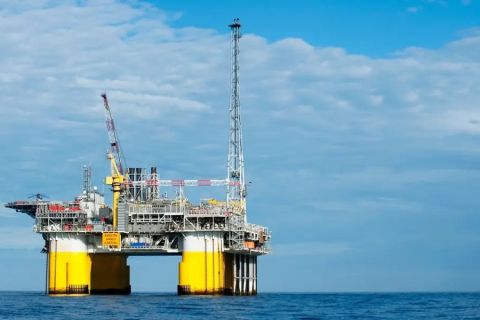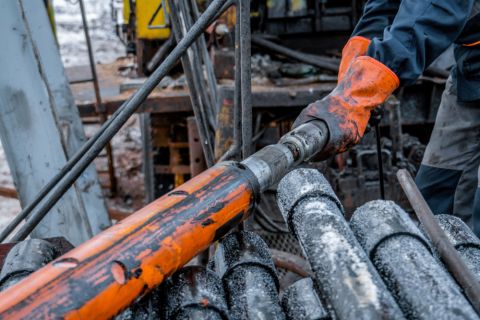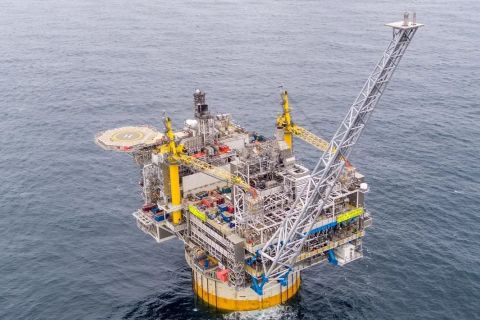On Jan. 4, Exxon Mobil became the second major oil and gas producer in a week to blame the state of California’s regulatory regime for essentially rendering some of its assets in the state worthless. As a result, Exxon expects to incur billions of dollars’ worth of impairment charges.
California’s already had a reputation for its arduous stance against further development of fossil fuels. But over the latter half of 2023, the state ratcheted up the pressure and more battles entered the courtroom.
“Because of recently enacted laws and regulations, oil production in California has declined by more than 25 percent in the past four years,” Rock Zierman, CEO of the California Independent Petroleum Association, told Hart Energy. “Yet, Californians are consuming as much oil as ever, meaning imported foreign [oil] has increased and Californians are sending $35 billion a year of their wealth to foreign countries like Saudi Arabia and Iraq.”

“For more than 50 years, Big Oil has been lying to us—covering up the fact that they’ve long known how dangerous the fossil fuels they produce are for our planet.” California Gov. Gavin Newsom
In a Jan. 4 filing with the Securities and Exchange Commission (SEC), Exxon reported expectations of up to $2.4 billion in impairments in fourth quarter 2023, citing “continuing challenges in the state regulatory environment” in a project to restart production at the company’s Santa Ynez Unit.
An impairment charge is an accounting tool used by a company to write down the value of assets. The write offs can be triggered by a variety of factors. In 2016, for instance, BHP Billiton wrote down the pre-tax value of its onshore U.S. assets by $7.2 billion because of a sharp drop in commodity prices.
Exxon isn’t alone. Two days before the company’s announcement, Chevron notified investors it would write off up to $4 billion for the fourth quarter, blaming Californian environmental regulations. Some bankruptcies of Gulf of Mexico operators are also likely to shift liabilities to the Chevron.
“The company will be impairing a portion of its U.S. upstream assets, primarily in California, due to continuing regulatory challenges in the state,” Chevron wrote in its filing with the SEC.
Exxon’s current difficulty with the state centers around the Santa Ynez Unit, which consists of three offshore platforms near Santa Barbara County. With a production rate of 30,000 bbl/d in crude and condensate, operations at the platform shut down in 2015 after a pipeline leak. Exxon has been seeking to re-start production at the unit since.
In October, a federal district judge ruled against Exxon in a suit the company filed against Santa Barbara County to allow shipments of oil produced from the platforms via truck. The platforms remained closed.
California ‘closed for business?’
San Francisco-based Chevron has had public confrontations with the state government prior to its impairment charge filing at the end of fourth quarter 2023.
Last spring, California Gov. Gavin Newsom signed a law aiming to penalize oil and gas producers for price gouging. The rule has not come into effect, however, as state lawmakers are still determining how to implement it, seeking to come up with definitive legal definitions for terms like “price gouging.” The California Energy Commission is currently defining an acceptable margin between production costs and prices.
Some of the proposals require refiners to send transaction reports to the Energy Commission on a daily basis, as well as monthly reports on profit margins. According to the governor’s office, the purpose of the new laws is to expose price manipulation as it happens.
Andy Walz, president of Americas products at Chevron, blasted the law in a December letter to the commission.
“Setting a margin penalty would absolutely discourage investments here,” Walz wrote. “Further, these arbitrary attacks on a disfavored industry do more than this—they signal to every industry, entrepreneur, manufacturer and employer that California is closed for business."
Court battles rage
Major energy firms have been in court battles with the state already.
In September, the state government sued Exxon Mobil, Chevron, Shell, BP, ConocoPhillips and industry trade association American Petroleum Institute. The suit claimed the companies misled the public on climate change and demanded help in recovery efforts for extreme weather events.
“For more than 50 years, Big Oil has been lying to us—covering up the fact that they’ve long known how dangerous the fossil fuels they produce are for our planet,” Newsom said in a new release announcing the suit.
At the time, an Exxon spokesman responded that the company had repeatedly acknowledged that climate change is real and has a business arm dedicated to reducing emissions.
Ryan Meyers, the general counsel for the American Petroleum institute, said the suit was meritless and an “enormous waste of California taxpayer resources.”
The state’s battle with the energy industry is extended to the 2024 election, with a specific spot on the ballot. In November, California voters will consider a referendum on state law SB 1137, which prohibits new oil and gas wells within 3,200 ft of homes, schools and hospitals. The rule was originally passed by the legislature in 2022.
The proposed law made it onto the ballot after a petition drive sponsored by the California Independent Petroleum Association garnered 978,610 signatures. The organization said the law threatens the jobs of more than 50,000 residents and would result in more foreign-produced oil coming to the state’s refineries.
“Local oil companies’ desire to restart production and contribute to the state's economy is strong among our member companies, as demonstrated by the 1,400 permit applications for new wells that sit unreviewed at the state,” Zierman said.
Recommended Reading
TGS, SLB to Conduct Engagement Phase 5 in GoM
2024-02-05 - TGS and SLB’s seventh program within the joint venture involves the acquisition of 157 Outer Continental Shelf blocks.
2023-2025 Subsea Tieback Round-Up
2024-02-06 - Here's a look at subsea tieback projects across the globe. The first in a two-part series, this report highlights some of the subsea tiebacks scheduled to be online by 2025.
StimStixx, Hunting Titan Partner on Well Perforation, Acidizing
2024-02-07 - The strategic partnership between StimStixx Technologies and Hunting Titan will increase well treatments and reduce costs, the companies said.
Tech Trends: QYSEA’s Artificially Intelligent Underwater Additions
2024-02-13 - Using their AI underwater image filtering algorithm, the QYSEA AI Diver Tracking allows the FIFISH ROV to identify a diver's movements and conducts real-time automatic analysis.
Subsea Tieback Round-Up, 2026 and Beyond
2024-02-13 - The second in a two-part series, this report on subsea tiebacks looks at some of the projects around the world scheduled to come online in 2026 or later.





